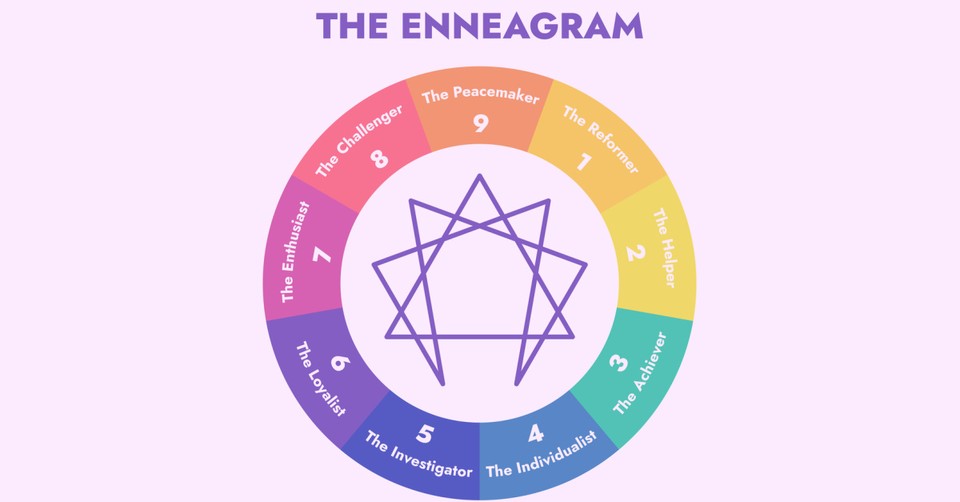5 Concerns Surrounding the Enneagram Christians Ought to Know

The Enneagram is a personality framework that has gained popularity in evangelical Christian circles in recent years. It consists of nine personality types, each with its own set of strengths, weaknesses, motivations, and fears. The Enneagram is designed to help individuals gain insight into their personalities and move towards emotional and relational health.
The Enneagram has its roots as far back as the fourth century, although its history is complex and debated. It has been used as a personality tool outside of Christian circles, but it has found a new home in evangelical spaces, thanks in part to Enneagram experts like Ian Morgan Cron and Matt Brown.
What Is the Enneagram?
The Enneagram categorizes individuals into nine different types, each with its own set of characteristics and tendencies. These types are not meant to box individuals into rigid categories but rather to provide a framework for understanding and self-reflection. Each type has its own strengths and weaknesses, and the Enneagram helps individuals recognize and work on their areas for growth.
The nine personality types outlined in the Enneagram are as follows:
1. The Reformer: Rational, idealistic, principled, and perfectionistic.
2. The Helper: Caring, interpersonal, generous, and people-pleasing.
3. The Achiever: Success-oriented, pragmatic, adaptive, and image-conscious.
4. The Individualist: Sensitive, expressive, self-absorbed, and sometimes temperamental.
5. The Investigator: Intense, cerebral, perceptive, and secretive.
6. The Loyalist: Committed, security-oriented, responsible, and sometimes anxious.
7. The Enthusiast: Busy, fun-loving, spontaneous, and sometimes scattered.
8. The Challenger: Powerful, dominating, self-confident, and confrontational.
9. The Peacemaker: Easygoing, self-effacing, agreeable, and sometimes complacent.
According to the Enneagram, each person has one core personality type, but they can also have a "wing," which reflects strong elements of the adjacent personality types. For example, someone may be a seven-wing six, meaning they have the adventurous nature of a seven but also value security like a six.
The Enneagram is often used as a tool for self-improvement and personal growth. It helps individuals understand their motivations, fears, and patterns of behavior, which can lead to greater self-awareness and the ability to make positive changes. By recognizing their strengths and weaknesses, individuals can work towards a greater place of emotional and relational health.
5 Concerns Surrounding the Enneagram
1. Origins: The Enneagram's origins are somewhat murky and have connections to various spiritual traditions, including Sufism and mysticism. This has led some Christian groups to label it as occult or unchristian. Some have claimed it has satanic roots due to its resemblance to a pentagram. It is important to note that the Enneagram's origins are not inherently religious or spiritual, but it has been adapted and embraced by many Christians as a tool for personal and spiritual growth.
2. Lack of Biblical Foundation: Critics argue that the Enneagram lacks a solid biblical basis for understanding human personality. Some view it as incompatible with traditional Christian teachings. It is important to exercise caution when using the Enneagram. It should not be given undue importance or be elevated to the same level as Scripture. It is a helpful tool, but it is not infallible or definitive. It should be used alongside other personality typing systems and spiritual practices, rather than being the sole focus of one's personal development.
3. Diversity of Interpretations: There are numerous interpretations of the Enneagram, which can lead to confusion and misapplication. Some critics feel that it's too subjective and open to misinterpretation.
4. Overemphasis: Some Christian communities have placed too much emphasis on the Enneagram, using it as a primary tool for discipleship and spiritual formation, potentially overshadowing traditional Christian practices. Christians should not rely solely on it for self-discovery. It should be used as a tool alongside other personality typing systems such as Myers Briggs, DISC, and StrengthsFinder. Each system offers different perspectives and can contribute to a more comprehensive understanding of oneself.
The frequency with which the Enneagram is taught and preached within certain religious communities is also a cause for concern. Churches should stay away from apportioning significant amounts of teaching and preaching time to the Enneagram, considering there are only 52 Sundays in a year. While the Enneagram can be a valuable tool for self-awareness and personal growth, it is important to strike a balance and ensure that other important spiritual teachings are not neglected.
5. Commercialization: The Enneagram has become a commercialized trend in some Christian circles, with books, conferences, and courses promoting it as a solution to various life issues. In Catholicism, it is often seen as a slow and private process of self-reflection, while in American evangelicalism, it has become more commodified and trendy. This shift has led to a more superficial understanding of the Enneagram, with people simply identifying their number without delving deeper into its teachings. When any concept becomes overly commodified, it tends to lose its depth and tends towards frivolity.
Should Christians Use the Enneagram?
In conclusion, the Enneagram can be a valuable tool for self-awareness and personal growth. It simplifies the understanding of personality types by focusing on one primary number, making it easier for individuals to remember and understand their type. The Enneagram also delves into the underlying motivations and fears that drive individuals' behaviors, leading to more informed choices and healthier relationships. While it should be used alongside other personality typing systems, many individuals find value in incorporating the Enneagram into their spiritual and personal development practices.
Want to hear more about the pros and cons of the Enneagram? Listen to our podcast episode on the topic and let us know what you think – is the Enneagram a tool you regularly use?
Image Credit: Getty/Daniela Design
Originally published September 05, 2023.





